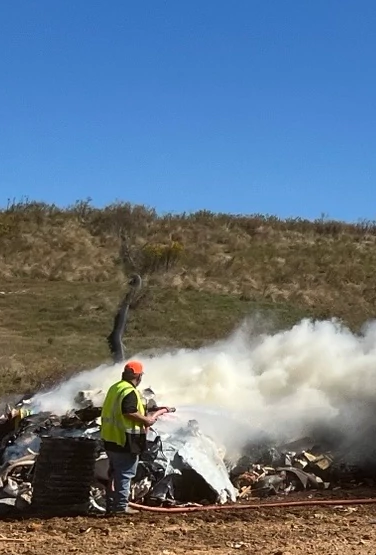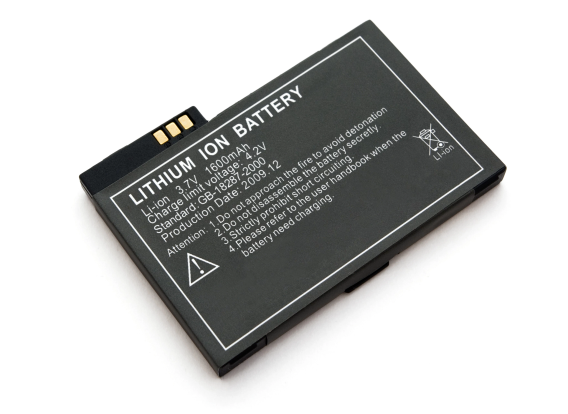
Only You Can Prevent Battery Fires
Properly dispose of lithium-ion (rechargeable) batteries to avoid fires. Find a full-service recycling center close to you.
Lithium-ion batteries can cause fires if not properly stored, disposed of, or transported at the end of their life cycle.
Do not place lithium-ion or rechargeable batteries in your trash or recycling bins. Instead, take these batteries directly to a Mecklenburg County full-service recycling center.
When you are at the center, look for the household hazardous waste area, and hand the battery to the center's staff. Disposal of lithium-ion batteries is FREE for Mecklenburg County residents.
What is a Lithium-Ion Battery?
Lithium-ion batteries contain chemicals that react with other materials, posing a serious fire hazard to waste collection vehicles and at recycling centers. Multiple fires have sparked at the Pence Road Materials Recovery Facility (MRF) and full-service drop-off centers due to improperly disposed batteries being crushed by materials and equipment.
Single-use (not rechargeable) batteries such as A, AAA, C and D can be tossed in the trash.
Lithium-ion batteries can be found in:
- Power tools
- Vapes
- Electronics (phones, tablets, laptops, etc.)
- Toys
- Electric bikes and scooters
- Small and large appliances
- Lawn care equipment
- Watches (including smart watches)
- Medical Devices (thermometers and blood sugar monitors)
- Calculators
- Laser pointers

Frequently Asked Questions
Lithium-ion/rechargeable batteries can spark fires if thrown into the trash or a recycling cart. When the batteries are damaged, a chemical reaction can occur, sparking a fire in your trash or recycling cart or in Mecklenburg County trucks or facilities.
Certain batteries, such as nickel-cadmium rechargeable batteries, can contaminate the environment if not properly disposed of. County residents can drop off rechargeable batteries at any full-service drop-off center.
Any rechargeable battery should be taken to a full-service drop-off center to be disposed of. This includes nickel-cadmium, nickel metal hydride, nickel zinc, lithium-ion, small-sealed lead acid, and any battery over 12 volts. Lithium-based batteries pose a potential risk when not properly protected, as witnessed by several fires at material recovery facilities across the country. For additional guidance, view this safety video.
Regular, non-rechargeable batteries, such as A, AA, AAA, C, and D, can be thrown in the trash. When in doubt about any other battery type, leave it out and bring it to a full-service center.
Find the closest center to you, hours of operation, and other recycling information.
If you can’t remove the battery, bring it to a full-service center, and the staff will safely remove it for you.

